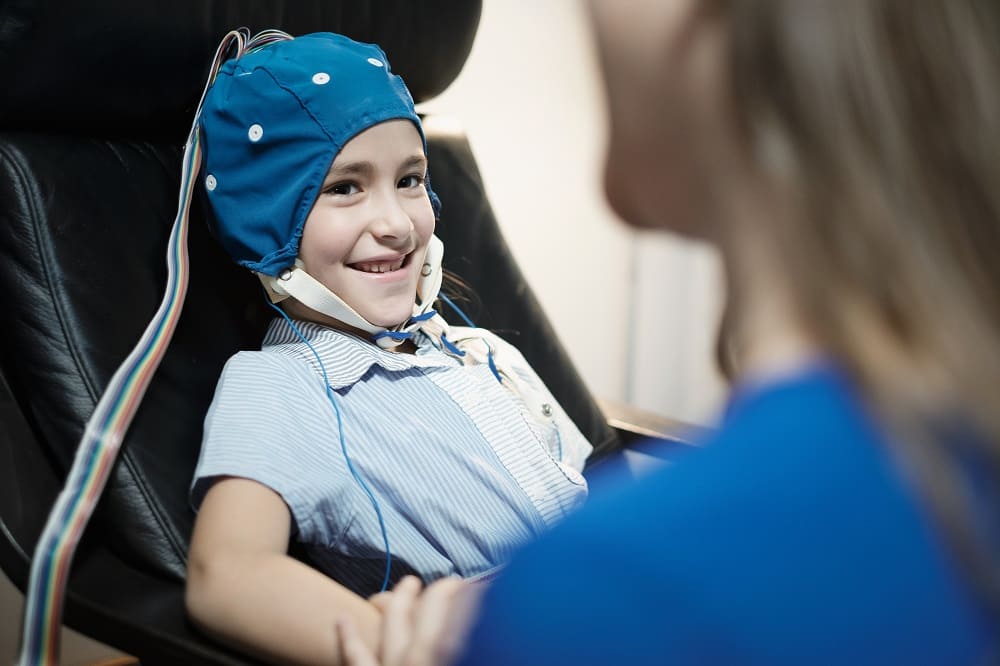Biofeedback Assisted Relaxation Therapy
In Biofeedback when we talk about B.A.R.T we are not talking about that crazy kid on the popular cartoon series, The Simpsons, we are talking about a very popular protocol which can be widely applied for various conditions. Rather than seeing it as a specific protocol I see it more as a concept. When practitioners are learning biofeedback for the first time, they are usually very interested in learning very specific protocols for the conditions they expect to be working with like headaches, anxiety, insomnia, and depression.
They expect a specific guide as to which modalities, what goals, and the number of sessions to work on each modality for each application. That would be nice. It makes things simpler and makes it easier to plan. It doesn’t always match reality for the individual that is in front of you. Now, what is B.A.R.T.? It is an acronym for Biofeedback Assisted Relaxation Therapy. It’s kind of like a generalized protocol that helps to counter the stress response by using biofeedback to teach clients to regulate their physiology using multiple modalities including surface EMG, Skin temperature, Skin conductance, Heart Rate/Heart Rate Variability, Respiration, and EEG. I decided to talk about this after reading Don Moss’s article, Biofeedback-Assisted Relaxation Training: A Clinically Effective Treatment Protocol in the Summer 2020 issue of Biofeedback Magazine.
With the B.A.R.T. protocol you look at how a person’s physiology reacts to stress, i.e. increased muscle tension, respiration, skin conductance, heart rate, high beta, and decreased skin temperature, and alpha and teach them to reverse it using the appropriate biofeedback modalities to do it. Clients are also instructed to practice appropriate relaxation exercises between sessions at home to initiate the relaxation response more often than when they are in the office for biofeedback sessions. They are also instructed to keep records of their frequency and severity of symptoms and the conditions surrounding when they experience the symptoms as well and their practice.
When I talk to clients who are suffering from stress related disorders, I like to discuss the concept of levels of stress response that they may be walking around with. The level is variable. If the level is low then they have more capacity to deal with the stress that comes along to add to it. If they already have a high level of stress then their capacity to deal with more is not as great. For those who suffer with things like panic attacks those times when their stress level is already high are times when it is more likely for them to go into a panic attack. During times when their stress level is lower it would be less likely for a stressor to push them into a panic attack. They would still feel stressed but be more able to manage it. I suggest that training with biofeedback and doing home relaxation practice can help bring their average stress level lower and thus increase their capacity to manage the stress that they will inevitably have to deal with in life. Besides the biofeedback we do during office sessions I ask clients to practice relaxation exercises at home and I ask them to practice awareness of muscle tension by passively scanning their bodies for areas of tension and releasing any tension that they identify. I also suggest that they take opportunities during everyday situations like standing in lines or waiting at red lights to practice slow breathing for short periods of time so that they are not always having to find 15-20 minutes for relaxation practice. This also helps them to be turning on the relaxation response more often during the day.
When in doubt, if you don’t find the ideal protocol for biofeedback, the B.A.R.T. protocol is a good option. It involves a thorough intake and history, tracking symptoms, doing a stress profile measuring multiple modalities under baseline, stressor, and recovery conditions as part of a complete initial assessment followed by training on the appropriate modalities plus homework of practicing relaxation exercises outside of the office.
Harry L. Campbell
914-762-4646 – Harry@biofeedbackinternational.com
Author of What Stress Can Do, Available on Amazon.com
Biofeedback Resources International Corp.





